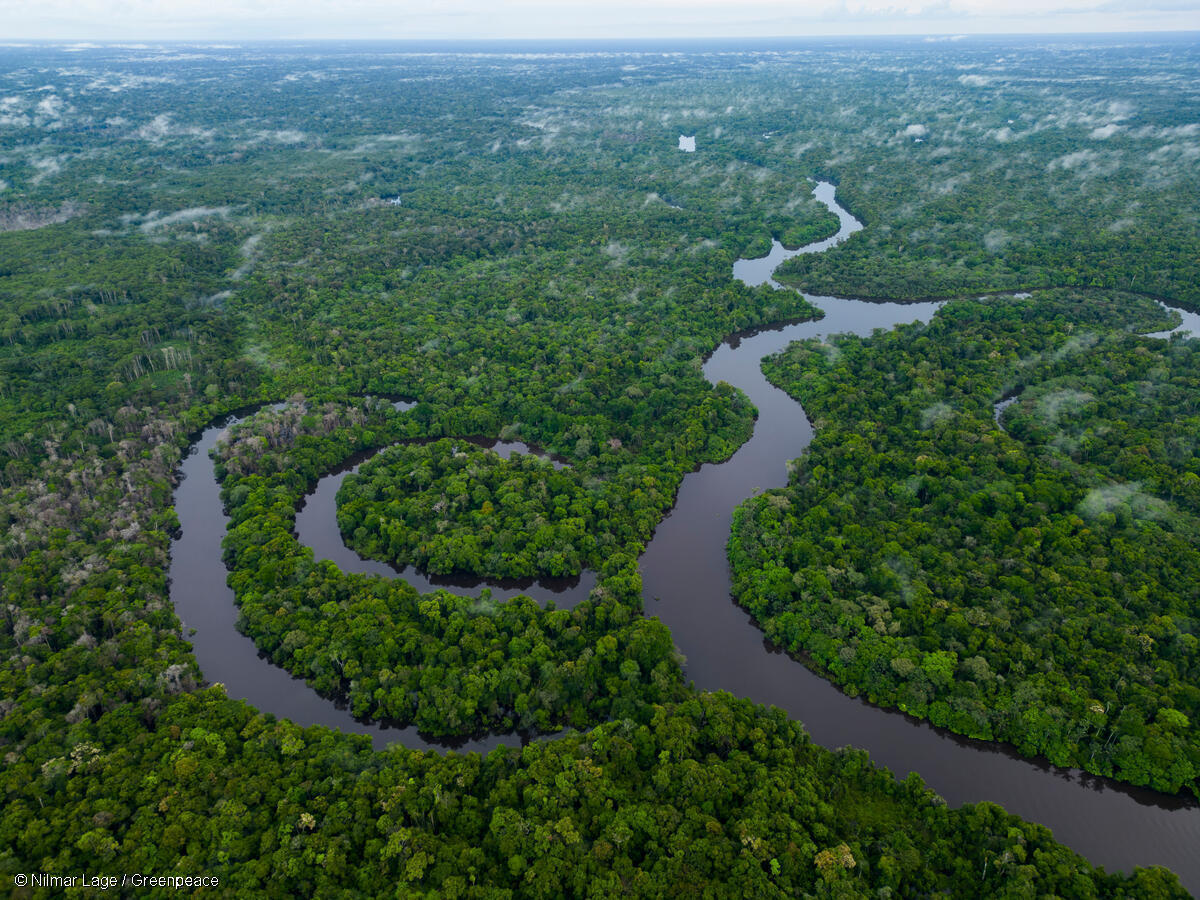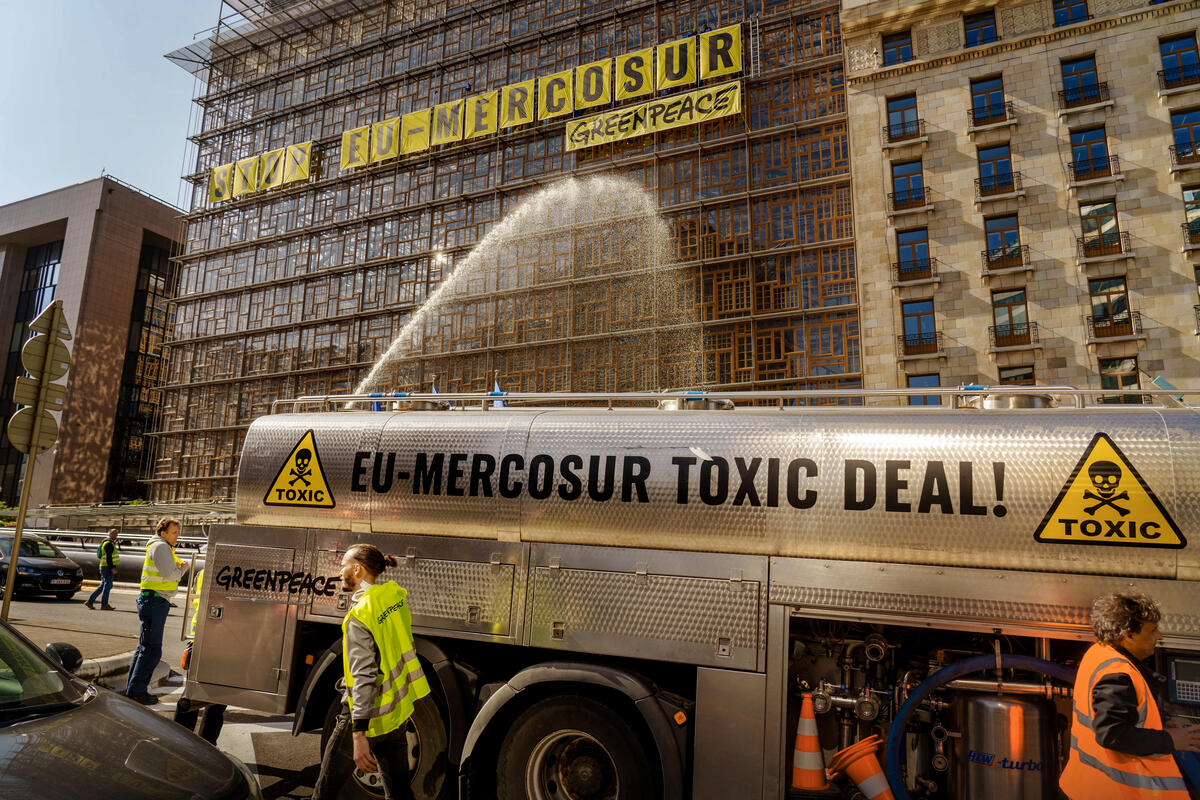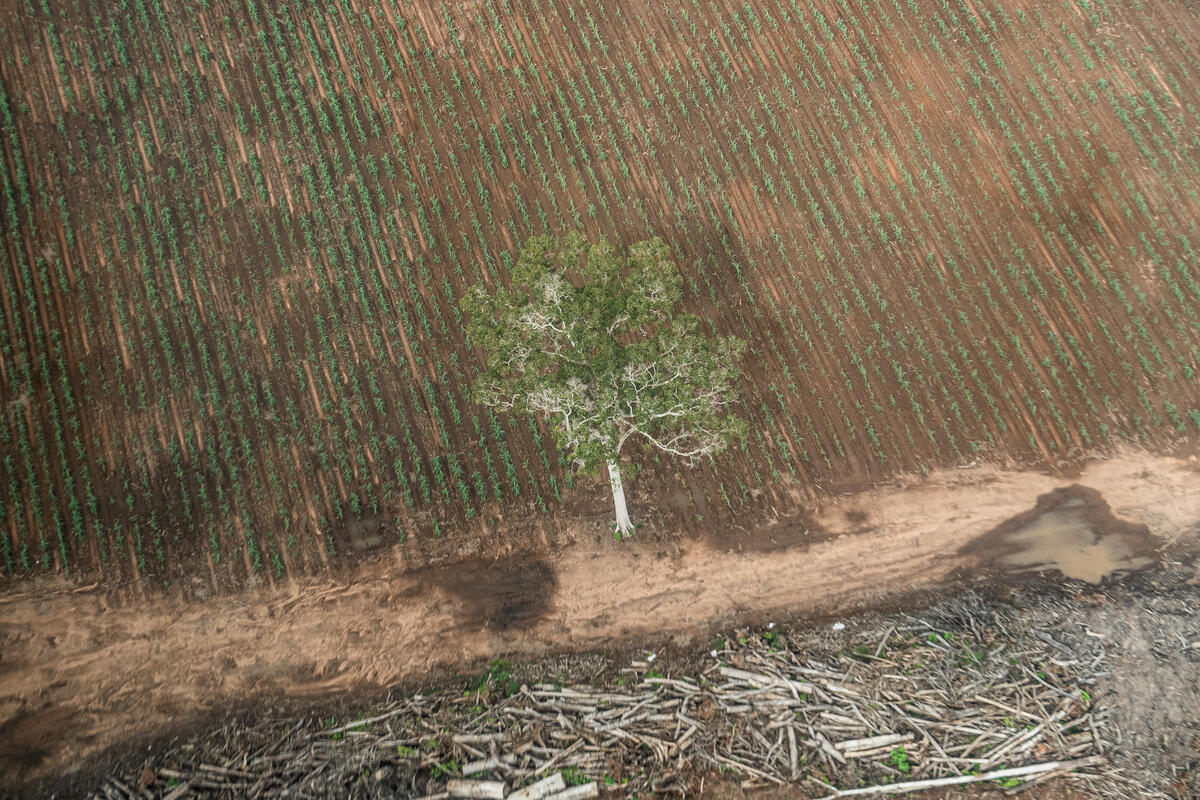Pension fund’s future investment strategy needs to be Paris-aligned.
Luxembourg, 08 July 2021 – Despite the climate emergency, the investments of the Luxembourg pension fund (Fonds de Compensation, FDC) continue to be off track with regards to the Paris climate objectives. This is the conclusion that Greenpeace Luxembourg has drawn after analysing the 2020 annual report of the FDC SICAV [1]. At the same time, according to the FDC’s annual report 2020 published last week, some of the pension fund’s sustainably managed sub-funds performed substantially better than their benchmarks, proving that sustainability and profitability go hand in hand. [2] Greenpeace calls upon the FDC to adopt a sustainability policy for all its investments, including a phase-out of climate-damaging fossil fuels and other carbon-heavy sectors, in its upcoming investment strategy review.
An analysis of the 2020 Annual Report of the FDC SICAV conducted by Greenpeace Luxembourg showed that the FDC does not seem to follow a coherent strategy in its pursuit of sustainability. While the fund’s investments into the Carbon Majors companies have decreased, the investments into coal companies increased from €257 million in 2019 to €289 million in 2020, despite the fact that coal is the most climate-damaging fossil fuel and that global coal use in electricity generation has to be phased out by 2030 if we want to avoid the worst effects of the climate emergency. [3] Furthermore, in 2020, some of its ESG-labelled sub-funds invested in oil, gas and other carbon-intensive companies as well as in the nuclear sector. [4]
“Again this summer we are witnessing the devastating effects of climate change around the world, and yet the decision makers at the FDC are not taking the necessary steps to put an end to climate-damaging investments,” said Myrna Koster, Climate Justice Campaigner at Greenpeace Luxembourg. “According to a recent survey conducted by TNS Ilres on behalf of Greenpeace, 47% of the country’s population does not agree with the FDC investing into fossil fuels. Abandoning carbon-intensive investments in favour of environmentally sound assets would allow the FDC to eschew financial risks and safeguard the pensions of current and future retirees.” [5]
On paper, sustainability does seem to have become a prominent concern for the FDC. Last year, the fund published its first Sustainable Investor Report, which states that “[a]s an institutional asset manager, FDC is aware of its ecological, social and good governance responsibilities.” [6] Incorporating ESG and sustainability aspects into its operating model is also a recurring theme in its 2020 Annual Report. In addition, the FDC stated that it will revise the fund’s approach in the course of this year “in order to further integrate ESG and sustainability criteria into its investment strategy.” [7]
At the same time, however, the FDC as well as policy makers continue to refer to the fund’s mandate “to ensure the long-term viability of the general pension insurance scheme” [8] to justify continuing to invest in polluting companies. This in spite of the fact that the FDC’s 2020 Annual Report clearly shows that there is no conflict between the FDC’s mandate and investing sustainably – quite the opposite. The Annual Report 2020 gives the example of a sub-fund manager who exclusively chose assets from companies with sustainable business models and solutions and as a result obtained an exceptional return of nearly 24%, outperforming the benchmark by 17%. Similarly, the manager in charge of a ‘Positive Impact’-themed sub-fund surpassed the benchmark performance by over 10%. [9]
“Sustainability is a pillar of Luxembourg’s nation branding yet the country’s sovereign pension fund FDC still fails to live up to this commitment,” said Martina Holbach, Climate and Finance Campaigner at Greenpeace Luxembourg. “Greenpeace calls upon the FDC Board of Directors to bring about the necessary measures to adopt an ambitious and coherent sustainability strategy for all its investments and to align these with the climate objectives of the Paris Agreement.”
Notes:
[1] Fonds de Compensation de la Sécurité Sociale, SICAV-FIS, ‘Annual Report, including audited financial statements as of 31 December 2020’, available here
[2] Fonds de Compensation, ‘Rapport annuel 2020’, available here
[3] Although investments into Carbon Major companies decreased by 30% compared to the previous year, a comparison with the Global Coal Exit List (GCEL) shows that FDC investments in 2020 in large coal companies increased by 16% in 2020.
On coal phase-out: United Nations Climate Change website, “UN Chief Calls for Immediate Global Action to Phase Out Coal”, 2 March 2021, available here
[4] In 2020, FDC investments were divided into 25 sub-funds, each administered by different fund managers. According to the FDC, 9 of the sub-funds have received an ESG label from the Luxembourg labelling association Luxflag. Our analysis shows that all ESG-labelled sub-funds have invested in large oil, mining or gas companies as well as car manufacturers, electricity suppliers, airlines or other carbon-intensive industries. Fund managers of these portfolios include Axa, Allianz Global Investors, HSBC, Amundi, and Natixis.
[5] TNS Ilres survey on behalf of Greenpeace Luxembourg, “Perception du changement climatique et des investissements du secteur financier”, May 2021, slide 23
[6] FDC Sustainable Investor Report, page 4, available here
[7] Fonds de Compensation, ‘Rapport annuel 2020’, page 7, available here
[8] FDC Sustainable Investor Report, page 6, available here
[9] Fonds de Compensation, ‘Rapport annuel 2020’, page 23, available here



